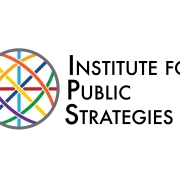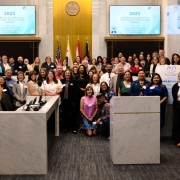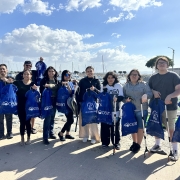IPS Adds Three Board Members, Emphasizing Inclusion, Diversity, Equity, Accessibility, Climate Change
Nonprofit strives to reflect the demographics of the communities it serves
SAN DIEGO, April 2025 – Southern California based nonprofit Institute for Public Strategies (IPS) is pleased to announce the addition of three new members to its board of directors, a group of dedicated leaders from throughout the United States. The additions come at a time when IPS is ramping up its Inclusion, Diversity, Equity, and Access (IDEA) efforts.
“I’d like to extend a warm welcome to our three newest IPS Board members. We are thrilled to have them join us during these extraordinary times,” Board Chair Marilyn Wexler said. “Their invaluable expertise and deep commitment to the IPS mission will be instrumental as we move forward, and I look forward to working closely with them.”
George Hacker retired as the Director of Alcohol Policies at the Center for Science in the Public Interest in Washington D.C. He co-chaired the Coalition for the Prevention of Alcohol Problems, whose members include the National Council on Alcoholism and Drug Dependence and many other public health and prevention groups.
Hacker previously directed alcohol programs at the Washington-based public interest support center, the Advocacy Institute. He also served as staff director for the National Coalition to Prevent Impaired Driving, a group of public health, traffic safety and law enforcement interests that promotes policies to reduce the toll of drinking and driving. Hacker has led national efforts to combat alcoholic beverage industry marketing and advertising practices, increase alcohol excise taxes, and to require warning labels on alcoholic beverage containers.
Hacker was affiliated with IPS in the early days of the fledgling organization. He served as an expert advisor to the IPS Alcohol Policy Panel and is looking forward to reconnecting with the institute with a renewed focus on climate change.
“It has been with great pleasure and pride that I have watched IPS for decades grow and mature into an effective generator and enabler of positive social change and people-centered advocacy,” Hacker said. “The timing is right for me to help IPS meet and overcome some very distinct challenges and continue its successful mission.”
Darwin Rodriguez is a doctoral candidate in anthropology at the University of California, Irvine. His research explores how diverse organizations conceptualize and respond to substance use issues at the community level, examining policy and public health frameworks that shape substance use interventions across different organizational contexts. Previously, Darwin spent 15 years working in nonprofits and community organizing, focusing on higher education, HIV/AIDS and sexual health. He serves as the chair of Drag Arts Lab in Los Angeles and teaches part-time.
Rodriguez worked at IPS for two years as the program manager for the West Hollywood Project and chair of the IPS IDEA Committee, where he was involved in implementing the DEI Strategic Plan. He was a senior trainer at the Posse Foundation and said he is very honored to be elected to serve on the IPS Board of Directors.
“After years of community service and organizing, I hope to lend my voice in furtherance of the organization’s mission,” Rodriguez said. “I am excited to learn from the other members of the board about the direction of the organization and to steward the organization’s strategic plans.”
Pamuela Halliwell is Assistant Director of Behavioral Health Services at The San Diego LGBT Community Center and licensed marriage and family therapist. She specializes in working with children diagnosed with autism spectrum disorder, transgender, non-binary and gender non-confirming individuals, unhoused and transitional age youth, active duty and retired military members, and members of the LGBTQ+ communities. Halliwell is also an author and past president of the San Diego Black LGBTQ Coalition.
“As a therapist, a woman, a transgender woman and an African American woman, I am aware of both my role in the community and working to fight against discrimination,” Halliwell said. “I will bring a unique perspective to the IPS board and will work to both empower and mobilize the community to make a change.”
IPS CEO Brenda Simmons is president of the board of directors. “I’m thrilled about the expansion of our board and the diversity of thought that these directors bring,” Simmons said.
IPS works alongside communities to build power, challenge systems of inequity, protect health and improve quality of life. IPS has a vision for safe, secure, vibrant and healthy communities where everyone can thrive.
Contact:
Brittany Hunsinger
Institute for Public Strategies
(619) 476-9100 ext. 122
bhunsinger@publicstrategies.










